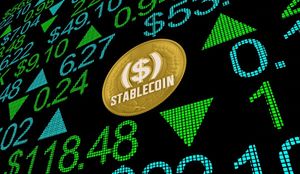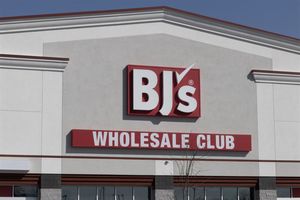It’s BBQ Season. Do You Know Where Your Beef Came From?
By:
StatePoint Media
June 14, 2023 at 01:00 AM EDT
SPONSORED CONTENT -- (StatePoint) As barbecue season heats up, you may be wondering how to square your love for T-bone steaks and spareribs with your concern for the environment. The good news? Science is delivering new, game-changing solutions to tackle the environmental footprint of the beef and livestock industries. The Problem Approximately 9 million dairy cows, 90 million beef cattle, 60 million swine and billions of poultry in the United States produce more than 100 times more organic waste than humans; but where human waste makes its way to a septic tank or sewage treatment plant, livestock waste is usually spread untreated on the ground as fertilizer. While this practice has short-term agricultural benefits, it’s ultimately a major contributor to a number of environmental and health issues. Phosphorous, nitrogen (mostly as ammonia), pathogens and bacteria from manure run off the soil and pollute waterways. This nutrient runoff fuels increasingly toxic algae blooms in fresh, estuary and coastal salt waters, creating areas where most aquatic species can’t survive. What’s more, the highly mobile and volatile nitrogen from ammonia in animal waste can become airborne, a difficult and expensive to control problem that poses significant health risks to humans. Finally, the 1.5 billion tons of manure generated in the United States annually also plays a major role in climate change. Manure emits carbon dioxide, methane and nitrous oxide, all of which are potent greenhouse gases. New Solutions An advanced livestock waste collection, treatment and recycling system from Bion Environmental Technologies Inc. is transforming manure from a liability to an asset. It starts with an innovative barn design that houses the livestock, collects waste, and feeds the treatment system on a continual basis. This patented technology not only provides comprehensive waste treatment that neutralizes pathogens, bacteria and ammonia and minimizes greenhouse gas emissions, but also produces superior organic, and climate- and water-smart, fertilizers with a low carbon footprint, as well as generates clean water and renewable natural gas. Typical beef production uses an extraordinary amount of water, particularly from crops for feed. With Bion, 30% of the waste stream is processed into recycled, clean water. And, thanks to precise application of organic and climate-smart fertilizers produced by the system, the resulting soil is healthier with a better balance of nutrients. In short, more abundant crops are produced, less water is used and greenhouse gas emissions are reduced. Along with environmental stewardship and resource efficiency at the forefront of the technology’s design, experts have been retained to ensure that animal accommodations, hygiene, care and feeding are all optimized for animal health and welfare. To learn more, visit bionenviro.com. “Today’s consumers want sustainable, transparent and ‘better for you’ food,” says Bill O’Neill, Bion’s CEO. “Through innovation, we are bringing real beef to tables that is both sustainable and ethical.” ***** Photo Credit: (c) MagicBones / iStock via Getty Images Plus More NewsView More
Via MarketBeat

NVIDIA Nears Buy Zone as Rumors Swirl About China Chip Deal ↗
Today 14:23 EST
Via MarketBeat
Tickers
NVDA

These 3 Tech Companies Are Suddenly Paying Bigger Dividends ↗
Today 13:02 EST


BJ’s Wholesale Club and the Case for a Bullish Market Reversal ↗
Today 11:45 EST
Via MarketBeat
Tickers
BJ
Recent QuotesView More
Stock Quote API & Stock News API supplied by www.cloudquote.io
Quotes delayed at least 20 minutes. By accessing this page, you agree to the Privacy Policy and Terms Of Service.
© 2025 FinancialContent. All rights reserved.
|
